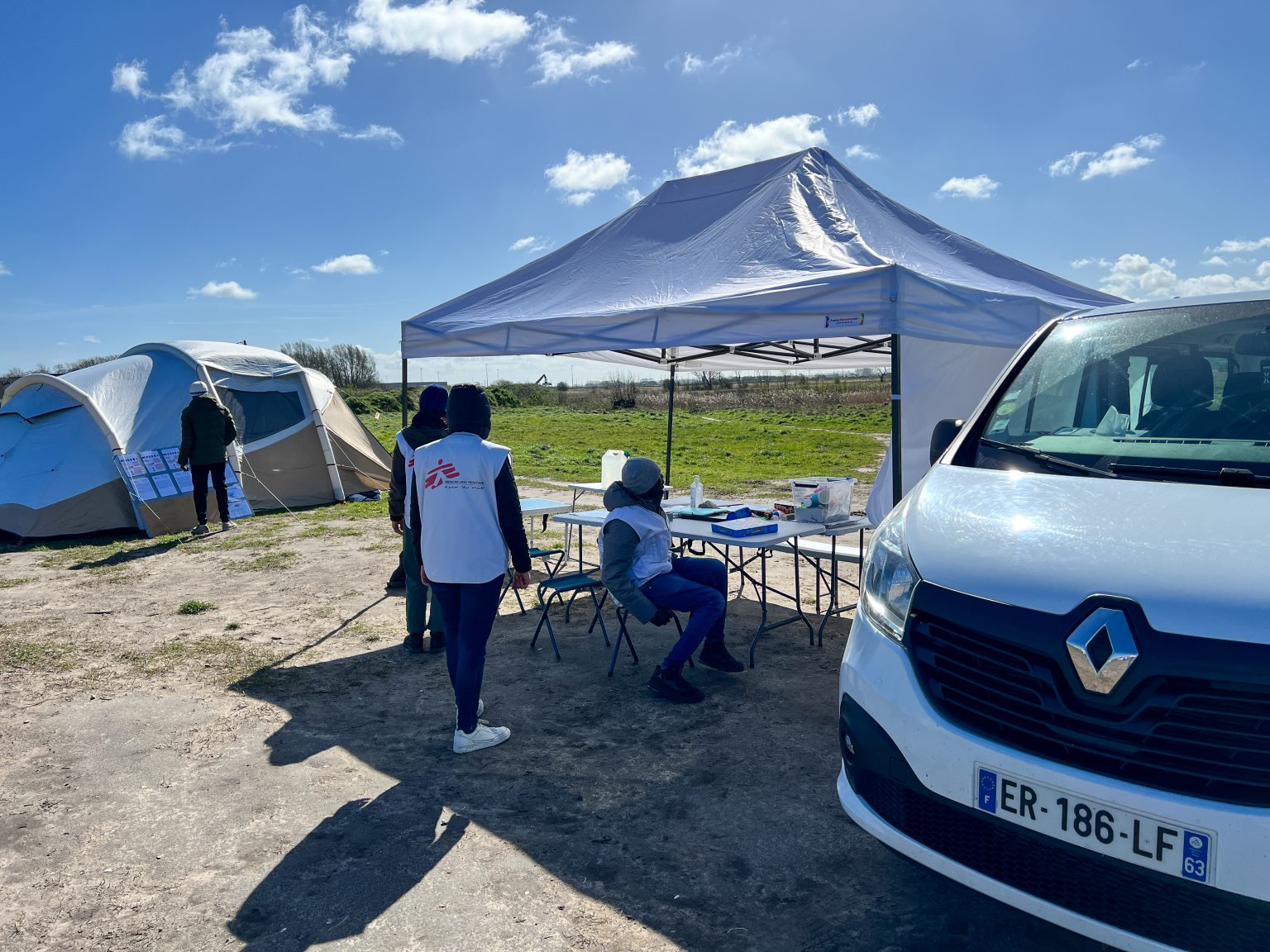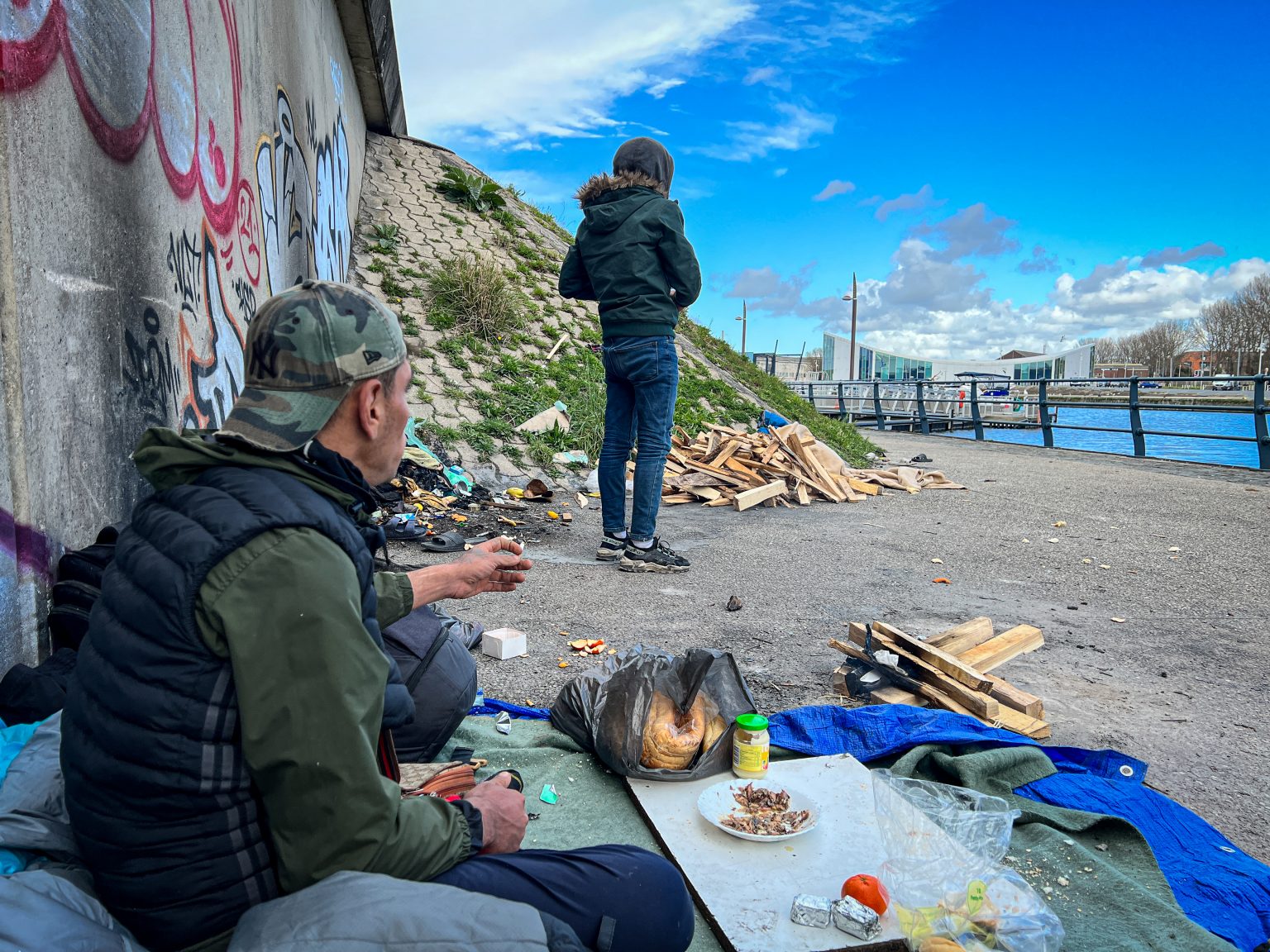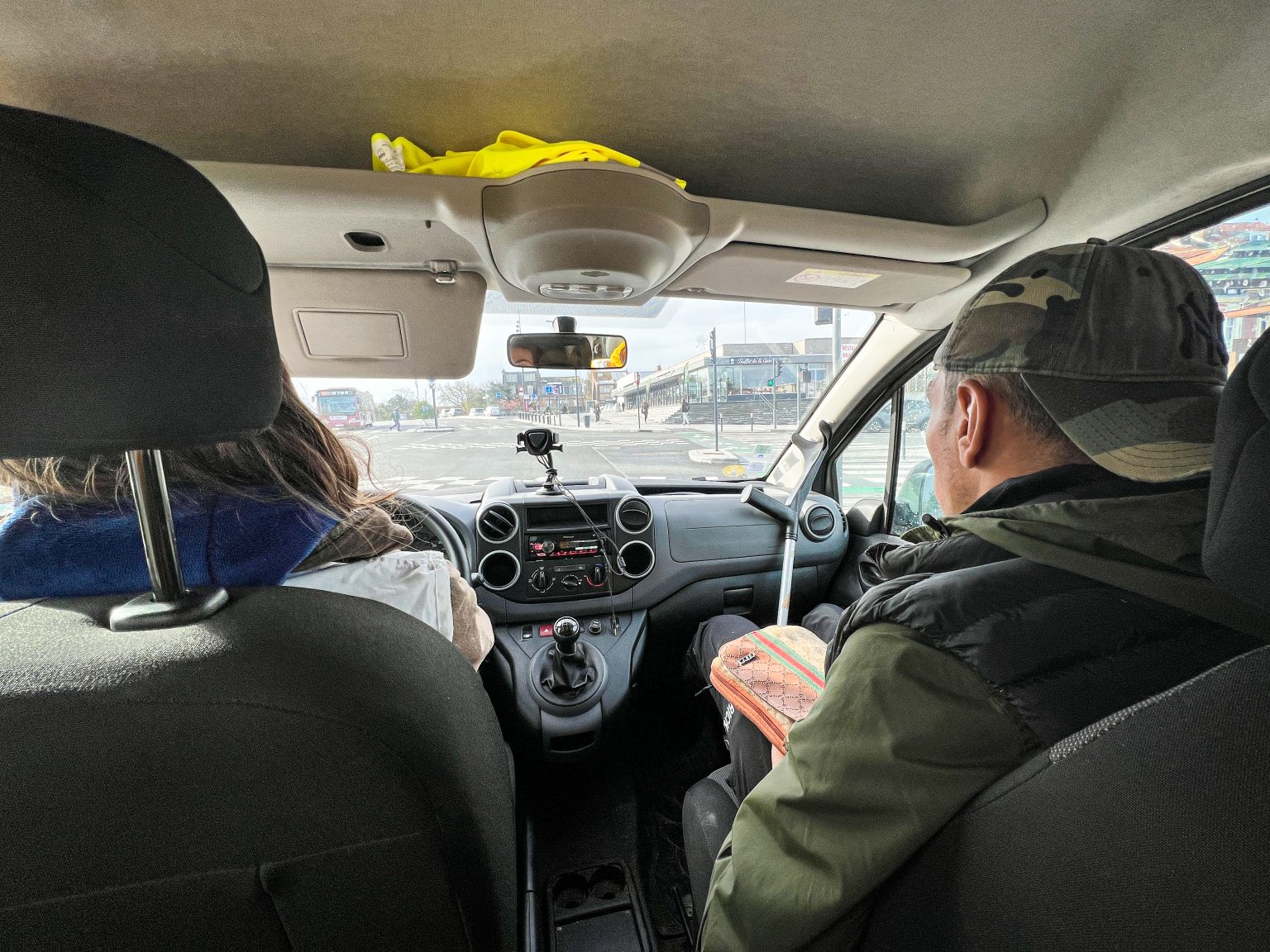Calais, 15 May 2023 – On the French-British border, hundreds of people are trying to reach the UK every day, risking their lives for lack of prospects in France or to join relatives in the UK. In Calais, they face a lack of support from authorities, isolation from local communities, and language barriers between them and providers of health services, further weakening people who have frequently suffered violence and psychological trauma on their journeys. Faced with a lack of provision of healthcare for migrants, refugees and asylum seekers by the French government, international medical organisation Médecins Sans Frontières/Doctors Without Borders (MSF) has launched activities in Calais to provide people with medical and mental healthcare.
Between 400 and 600 migrants, refugees and asylum seekers are currently living in Calais. This is a low figure compared to previous years, due both to an increase in crossings and to the ‘zero-fixation points’ policy, which dispersed people across the northern coast of France.


To help meet the health needs of migrants, refugees and asylum seekers dispersed across informal settlements and to help them overcome obstacles to accessing healthcare, the MSF team visits the areas where they live, including settlements, day centres and shelters. Team members raise awareness of mental health issues, identify the most vulnerable cases through psychosocial activities and refer them to free medical centres (Permanence d’accès aux soins) or to hospital, in a cooperative approach with public health providers.
In the first round of consultations, the most frequent medical conditions were respiratory problems linked to exposure to the cold and a lack of treatment of infections, and pain from injuries received falling from lorries while attempting to cross the English Channel. The MSF team also provided care to people who had suffered physical violence on their journey and people who had gone through traumatic experiences, such as surviving shipwrecks in the Channel.

The reduction of safe and legal routes to the UK only increases the number of tragedies on this border. According to the Observatoire des migrants morts à Calais, more than 350 people lost their lives in France, Belgium, the UK or at sea while trying to reach England between 1999 and 2023. Thousands more live with physical and psychological injuries as a result of French and the British governments’ policies.
The MSF team works with volunteer organisations that have been operating in the area for a long time.











